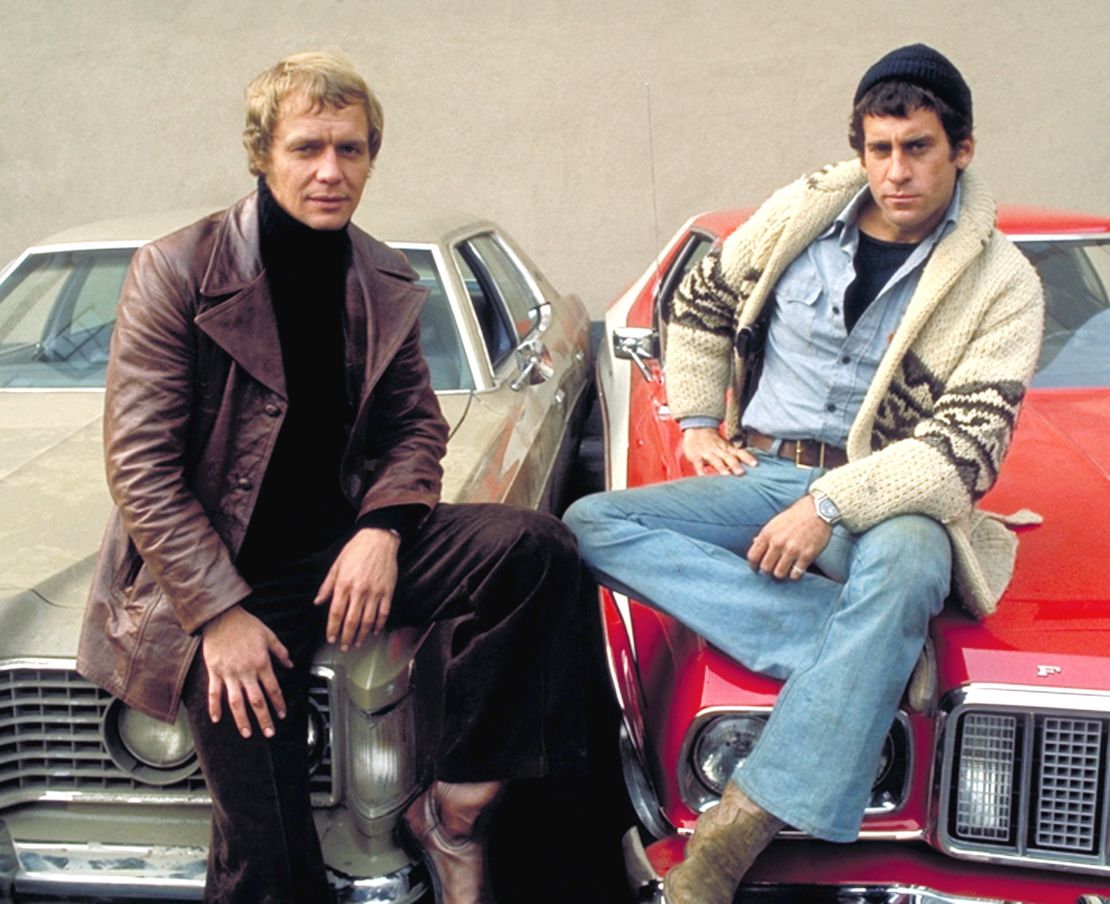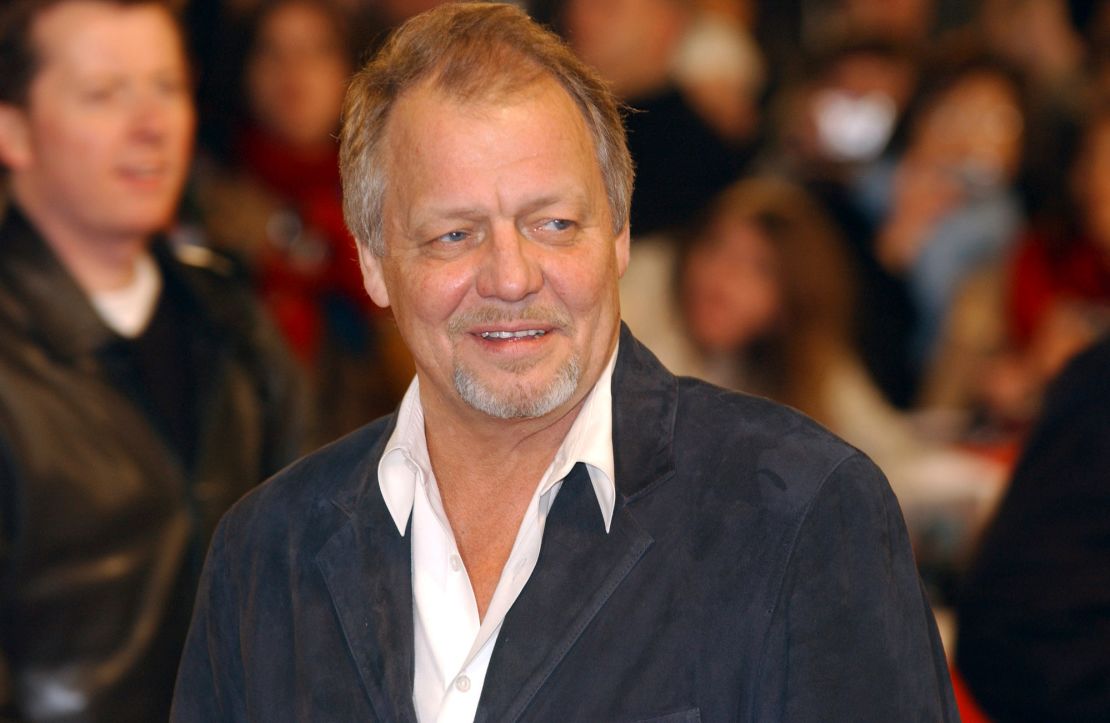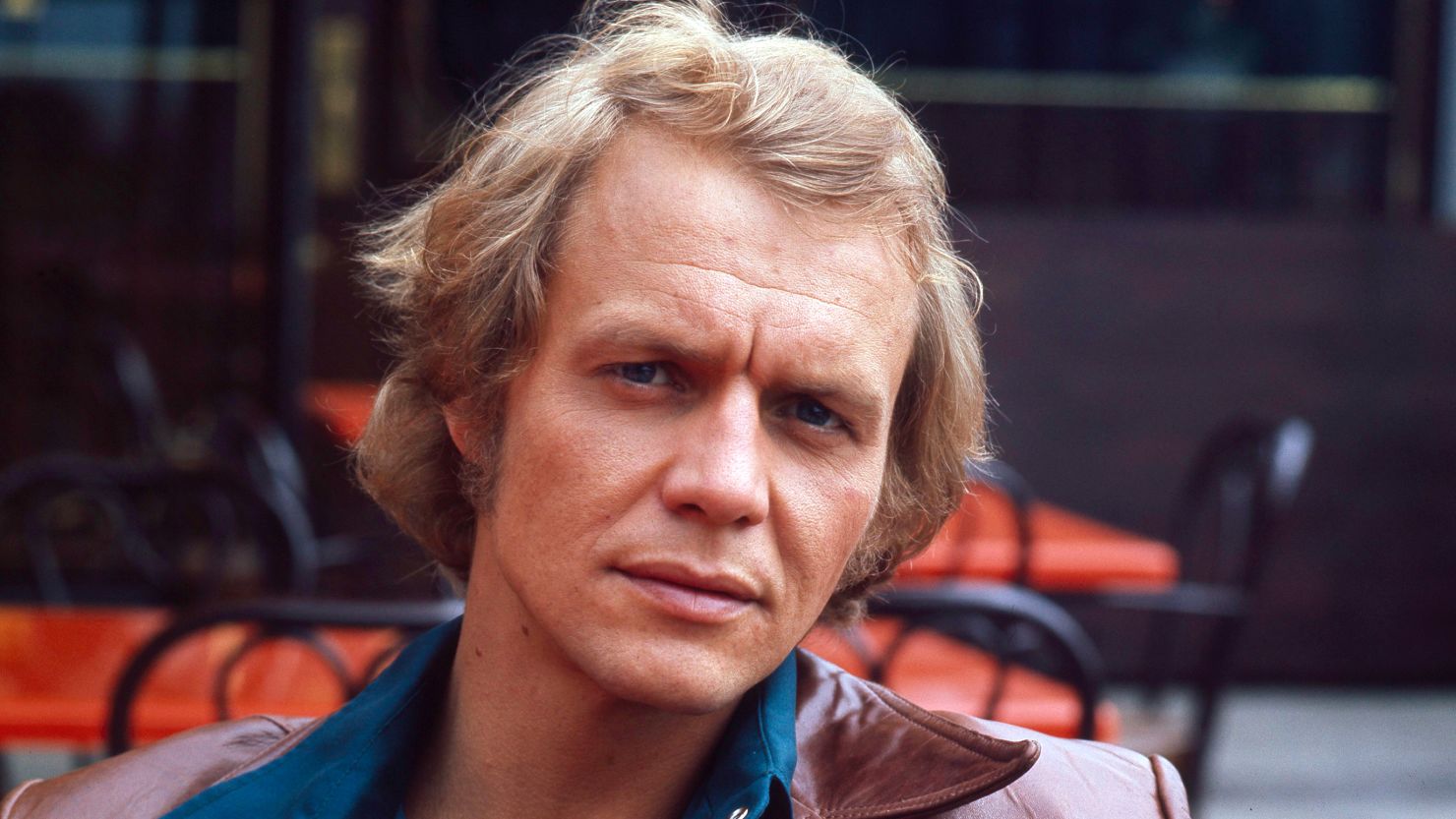David Soul, best known for his role in the popular 1970s television series “Starsky & Hutch” has died, his wife announced in a statement to CNN.
He was 80.
“David Soul – beloved husband, father, grandfather and brother – died yesterday (4 January) after a valiant battle for life in the loving company of family,” his wife Helen Snell wrote. “He shared many extraordinary gifts in the world as actor, singer, storyteller, creative artist and dear friend. His smile, laughter and passion for life will be remembered by the many whose lives he has touched.”
No cause of death was shared.
According to his site, the actor was born David Solberg in Chicago, Illinois and “spent the first twelve years of his life between the prairies of South Dakota and the divided city of post WWII Berlin.”

His father, Richard Solberg, was a professor of history and political science as well as an ordained minister and moved the family to Berlin where the elder Solberg served as religious affairs advisor to the US High Commission and, later, as a senior representative for the Lutheran World Federation, a refugee relief organization.
The man who would go on to become a star had a passion for sports, including baseball and after graduating from high school, the then 18-year old was offered a contract to play with the Chicago White Sox.
But in his second year of college he opted instead to accompany his family to Mexico City, where his father had accepted a job teaching at Collegio American.
There he learned Spanish and fell into the entertainment industry almost by accident.
After getting involved in a movement to rid Mexico of corruption, a group of students gifted him with a guitar and taught him indigenous songs.
Upon returning to the Midwest, he sought out work and was hired to sing folk music at the Ten O’Clock Scholar, a University of Minnesota coffee house where the likes of Bob Dylan had performed. Being a “blond, blue-eyed Norwegian” who could sing Mexican folk songs won him the gig, according to information on his website.
Married at 21 with a child to support, he had a dispute with a friend who was an actor and also had a romantic interest in Solberg’s wife. After a confrontation with that friend left the actor unable to appear in a play, Solberg took over the role from him.
Soon after he seperated from his wife, shortened his last name to “Soul” and began performing as “The Covered Man.” After sending a photo of himself as “The Covered Man” and an audition tape to the William Morris talent agency, he was signed without even meeting them.
His television work in the 1960s in “I Dream of Jeannie,” “Star Trek” and “Flipper” led to a starring role as Joshua Bolt in the series “Here Come the Brides.”
While he is most famous for “Starsky & Hutch,” Soul also starred in the Dirty Harry film “Magnum Force,” which he said led to his role on the hit show.

“Warner Bros. decided that Christmas would be the perfect time to release its version of how to keep peace in the world: MAGNUM FORCE premiered on this day 50 years ago. Peace, in the form of curbstone justice,” Soul wrote in December on X, formerly Twitter. “I’m not sure much has changed since then. I’m actually embarrassed to tell you that (but it was a job and it landed me a little role in ‘Starsky & Hutch’ so I’m not complaining).”
Playing opposite Paul Michael Glaser, who starred as Detective Dave Starsky, the pair’s chemistry helped popularize “Starsky & Hutch.”
The show leaned into not only their crime fighting as undercover police officers, but also the setting of the fictitious Bay City, California, which included plenty of beautiful women and their two door Ford Gran Torino car.
Soul worked steadily as an actor after “Starsky & Hutch” ended, but he also never let go of his first love of music. He had a hit with the single “Don’t Give Up on Us” in 1976 and released five albums over the years.
In 2004, he and Glaser made cameos in the the crime comedy film adaptation of “Starsky & Hutch,” this time with Ben Stiller and Owen Wilson playing the detectives.
Soul will also be remembered for his work as a director and a producer, including the 1987 documentary “Fighting Ministers,” which he co-directed, funded and produced.
This story has been updated.




